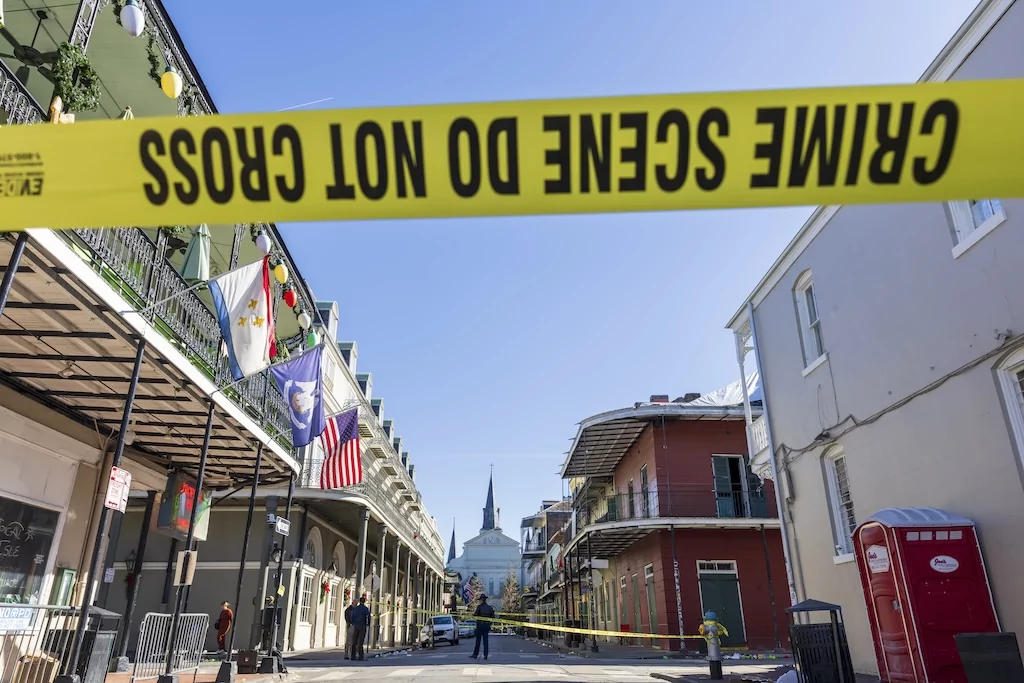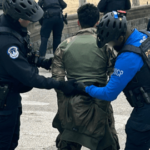

Two men with ties to the U.S. military are accused of perpetrating terrorist attacks on New Year’s Eve, bolstering concerns over the capacity of military members who have been radicalized to use their training and knowledge for domestic harm.
Shamsud-Din Jabbar, 42, and Matthew Alan Livelsberger, 37, who police say are behind the New Orleans Bourbon Street attack and a Tesla Cybertruck bombing outside of a Trump hotel, respectively, both served in the Army.
Jabbar killed at least 15 people and injured many more while speeding down Bourbon Street in a truck as crowds of people lingered from New Year’s Eve events, while Livelsberger appeared to use an explosive to blow up his Cybertruck, injuring several people nearby while authorities suspect he killed himself with a firearm.
An Associated Press investigation found that more than 480 people with a military background have been accused of “ideologically driven extremist crimes” from 2017 to 2023. The advanced tactics employed by military members along with access to weapons and armament contribute to the possibility of lethal terrorist attacks by members of the armed forces who hold radical beliefs.
The participation of active military and veterans gave extremist plots more potential for mass injury or death, according to data collected and analyzed by the National Consortium for the Study of Terrorism and Responses to Terrorism at the University of Maryland. They also found that 80% of extremists with military backgrounds identified with right-wing, anti-government, or white supremacist ideologies, with the rest split between left-wing, jihadist, or other motivations.
The investigation also found that military members have been radicalizing at a faster rate than the general population in recent years.
At least one of the accused New Year’s Eve attackers, Jabbar, identified with a jihadist organization. An ISIS flag was found in his truck, and he reportedly wanted to join the terrorist group. Livelsberger’s motivations for blowing up his truck remain unknown. He was on approved leave at the time of his death.
While any person can be susceptible to sympathizing with radical beliefs, military members are seen as especially vulnerable because of the plights of service.
A mental health crisis among veterans is ongoing, with service members who have deployed to Iraq and Afghanistan facing higher post-traumatic stress disorder rates than those who have not. Both of the New Year’s Eve attackers deployed to Afghanistan during their service careers. Veterans also suffer from higher rates of homelessness than the general population and many deal with service-related health problems, such as negative effects from being exposed to toxic burn pits in Afghanistan and Iraq.
The myriad problems facing veterans have left many feeling as if they’ve been left behind. In some instances, their resentment has led to them seeking out radical terrorist organizations such as ISIS. An Army private first class was sentenced to 14 years in prison in October 2024 on charges he assisted the group with training and guidance while advising them on targets.
Others seemed to simply snap, with investigations afterward identifying lapses in communication and the doling out of necessary care. Robert Card, an Army reservist, killed 18 people in Lewiston, Maine, in October 2023 after several red flags about his mental health were ignored by his chain of command.
CLICK HERE TO READ MORE FROM THE WASHINGTON EXAMINER
While the investigations into the two New Year’s Eve attacks are ongoing, details suggest even the government does not have complete control over military members becoming radicalized.
“What’s vexing about this is we don’t have a great sense of the scope of the problem,” then-Pentagon spokesman John Kirby told CNN in 2021. “Many of these people … work very hard to conceal their beliefs. We can’t be the thought police.”






